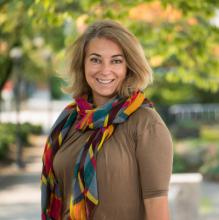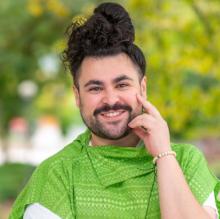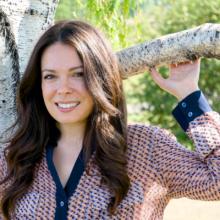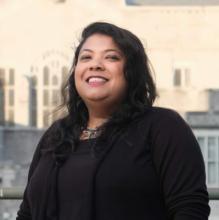Evan is a health literacy researcher and advocate whose current work focuses on trans* and gender nonconforming people's experiences of cancer and health decision-making. Their work is located within the Cancer's Margins project: Canada's first nationally funded research project exploring the intersections of cancer with gender and sexual marginality.
Research Description
Research on social and cultural dimensions of experiences of illness has documented that patients often make decisions about health and treatment processes in contexts that are informed by multiple, competing, and contradictory systems of knowledge. By linking systems of knowledge and knowledge mobilities with contextual, cultural, and experiential accounts of cancer health and decision-making, this project uses intersectional and relational approaches to cancer and gender to trace how experiences of health/illness, cancer, embodiment, and decision-making are shaped by systems of knowledge. The methodological framework for this work – Genealogical Phenomenological Schematization – positions cancer as an ethnographic object and focuses on tracing genealogical understandings of the body as acted upon, alongside phenomenological accounts of experiences of embodied subjectivity. This research specifically addresses and defines multiple avenues of knowledge seeking, knowledge access, and various knowledge systems that are mobilized to inform trans* and gender nonconforming patient cancer health and care decision-making.
What does being a Public Scholar mean to you?
Being a public scholar means that ones work is held to a higher level of scrutiny - a standard that is not only acceptable to the academic world, but that also resonates with the lived experiences of the people and populations that one studies and contributes to. I am honoured for the opportunity to be involved with a group of innovative graduate students who are pushing the boundaries and capacities at the intersection of academic research and public scholarship.
In what ways do you think the PhD experience can be re-imagined with the Public Scholars Initiative?
The Public Scholar's Initiative allows for PhD students to create innovative programs of research that push the boundaries and create opportunities for creating new knowledge and the facilitation of knowledge translation between academic research and public knowledge.
How do you envision connecting your PhD work with broader career possibilities?
My PhD work allows me the unique opportunity to better understand the intersections of sexual and gender marginalization and health literacy - in research, theory, and practice. My ideal career would allow me to combine my passions in academia, research, and health systems and service provision.
How does your research engage with the larger community and social partners?
My research is located directly under the Cancer's Margins project, which is partnered with researchers from five universities across Canada. This project uses arts and community based research methods to engage research participants in the development of a unique queer archive of experiences of cancer diagnosis, treatment, health decision-making and support that can be accessed online.
Why did you decide to pursue a graduate degree?
I decided to pursue a graduate degree to both further my own academic skills and research capacities. Also, my work in this program will expand the research landscape that investigates the health of trans* and gender nonconforming people, as well as contributing to the research landscapes that inform the development of health delivery and service protocols.
Why did you choose to come to British Columbia and study at UBC?
I chose to study at UBC because it is not only one of the most highly regarded international research universities, but also because the faculty and leadership in the Faculty of Education have such a highly regarded reputation as leading queer health and education scholars. And of course, I was excited about the opportunity to read, write, learn and be a visitor on the beautiful campus of UBC (unceded Musqueam territory).
My PhD work allows me the unique opportunity to better understand the intersections of sexual and gender marginalization and health literacy - in research, theory, and practice".




